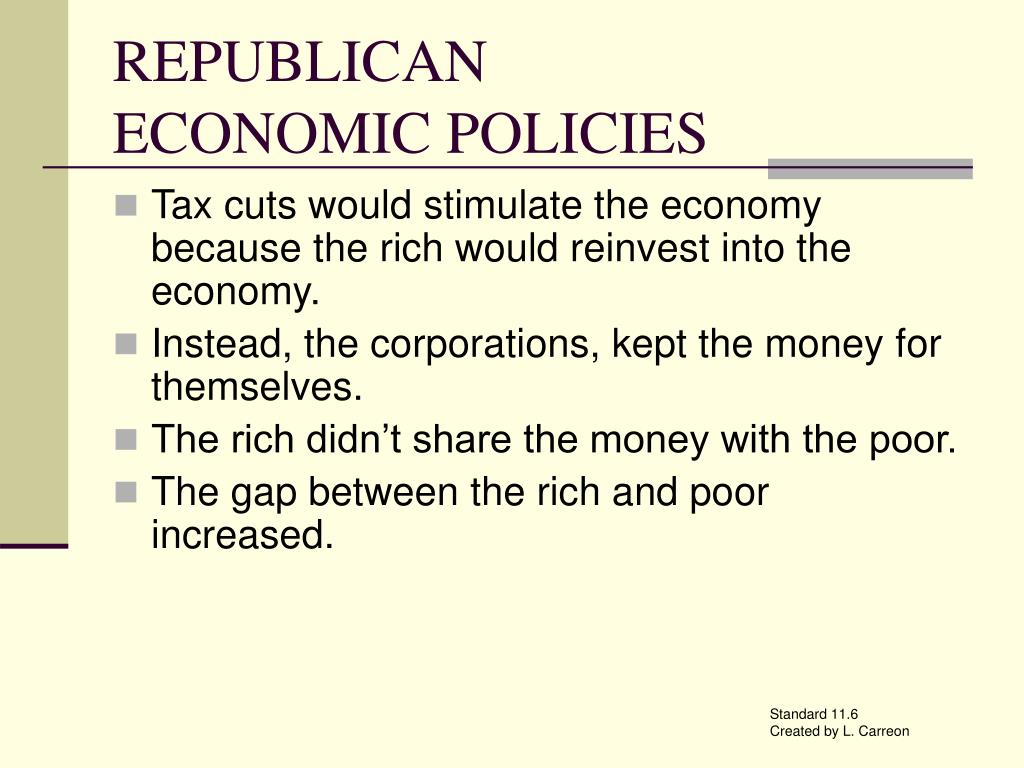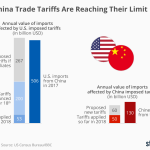Republican economic policies have long stirred debate, often reflecting a complex interplay between traditional conservatism and modern free-market ideals. Historically, notable GOP figures like Oren Cass criticize current trends toward market fundamentalism, arguing that an unwavering focus on deregulation and free trade has neglected the foundational Republican priorities of strengthening American households and fostering workforce development. This divergence from earlier Republican economic principles, where tariffs and worker welfare were central, underscores a shift away from the party’s roots. Advocates of conservative economics now face the challenge of reconciling these priorities with the realities of an evolving global market. As the conversation unfolds, the implications of these policies resonate widely, prompting both reflection and reevaluation among GOP leaders and their constituents alike.
The topic of Republican fiscal strategies often sparks intense discussions, particularly when considering the historical context of GOP economic frameworks. Figures such as Oren Cass highlight how the party’s association with free-market doctrines has evolved, often straying from earlier commitments to worker empowerment and community investment. This shift has led to a realization among conservatives that prioritizing individual purchasing power overlooks critical considerations, like family stability and social cohesion. As the conservative movement grapples with the concept of market dynamics, it’s essential to explore how these economic strategies not only impact wealth creation but also the fabric of American society. In doing so, policymakers are urged to reassess their role, aiming to enhance the market’s contributions to both economic growth and the welfare of the population.
The Failures of Free Market Policies in Modern America
In recent decades, free market policies have faced criticism for their inability to produce equitable economic outcomes for American households. Economist Oren Cass emphasizes that this approach, focused predominantly on deregulation and unrestricted trade, overlooked the complexities of workforce development and the well-being of the average worker. The empirical evidence is clear: wage stagnation coupled with growing income inequality suggests that these policies have not delivered the prosperity they promised. As such, Cass argues that the time has come for a reevaluation of these entrenched beliefs and their alignment with the principles of conservative economics.
Moreover, the overreliance on market fundamentalism has exacerbated the disconnect between economic growth indicators and the lived experiences of many Americans. While GDP may be rising, many workers find themselves struggling to keep up with the cost of living. This dissonance highlights the failure of free-market proponents to account for the socio-economic realities that families face daily. Cass calls for a return to a more balanced view that promotes not only consumption but also the nurturing of a workforce capable of supporting robust communities.
Frequently Asked Questions
What are Republican economic policies focused on today?
Republican economic policies today emphasize free-market principles, tax cuts, and deregulation as tools to enhance economic growth. These policies aim to promote entrepreneurship and business development while advocating for limited government intervention in the economy.
How have GOP economic policies changed over time?
GOP economic policies have evolved from historical practices, which included protectionist measures and workforce enhancement, to a more modern focus on market fundamentalism, characterized by deregulation and an emphasis on individual consumer choice. This shift has sparked debate among conservatives about the effectiveness of these approaches.
Who is Oren Cass and how does he relate to Republican economic policies?
Oren Cass is a conservative economist and founder of the think tank American Compass. He critiques the current GOP economic orthodoxy, arguing that an unfettered focus on market-driven outcomes has led to dissatisfaction among American workers and families, contrasting with historical Republican policies that prioritized workforce development.
What is market fundamentalism and its impact on conservative economics?
Market fundamentalism refers to the belief that free markets can solve most economic issues without government intervention. This ideology has significantly influenced conservative economics, often at the expense of broader socioeconomic stability, leading to concerns about stagnating wages and increased reliance on government support.
How did Reaganomics contribute to contemporary Republican economic policies?
Reaganomics, which advocated for tax cuts, deregulation, and a strong emphasis on free enterprise, has shaped contemporary Republican economic policies. However, historical analysis suggests that even Reagan’s approach included protective measures for workers, challenging the notion of strict adherence to market fundamentalism in GOP economic history.
What criticisms do conservatives have about the current free-market policies?
Many conservatives, including voices like Oren Cass, criticize current free-market policies for ignoring the needs of American households. They argue that an excessive focus on consumer pricing and deregulation has led to job offshoring and wage stagnation, undermining the core Conservative belief in nurturing a strong domestic workforce.
How have free-market policies affected the American workforce?
Free-market policies have, according to critics like Oren Cass, resulted in a disjointed economic landscape that prioritizes consumer goods over job creation. This has contributed to stagnant wages and an increased reliance on federal aid, questioning the sustainability of current Republican economic strategies.
What are the implications of GOP economic history on today’s policies?
The implications of GOP economic history suggest a need for a rebalance, where policymakers consider the success of past practices, such as tariffs and protection of American wage earners, against the contemporary trend of market fundamentalism that may not support long-term economic health for families.
| Key Point | Explanation |
|---|---|
| Republican Economic Policies vs. Historical Practice | Many Republican presidents historically have not followed current GOP economic orthodoxy as defined today. |
| Deregulation and Trade Focus | An overemphasis on deregulation and unrestricted trade has not benefited American households, leading to stagnant wages and increased reliance on government aid. |
| Impact of Reagan’s Policies | Despite the idealization of Reaganomics, Reagan himself raised taxes and provided significant government aid, contradicting the narrative around market fundamentalism. |
| Fragmentation of Coalitions | The coalition of social conservatives, economic libertarians, and national security proponents fragmented post-Cold War, affecting the coherence of Republican economic policies. |
| Economic Libertarianism Critique | Cass criticizes the libertarian focus on consumerism over supporting a robust workforce, arguing it undermines family and community stability. |
| Market Definition and Role | Cass believes the market’s purpose goes beyond consumption—it’s about empowering workers and strengthening social fabric, requiring active policy engagement. |
Summary
Republican economic policies have undergone significant scrutiny and evolution, particularly as past practices diverge from those promoted today. Historical Republican presidents often embraced strategies that were not aligned with the free-market ideals that dominate contemporary discussions of GOP economics. As the political and economic landscapes have shifted, there is a growing realization within the party that focusing solely on deregulation and individual consumerism may not lead to sustainable prosperity for American households.


